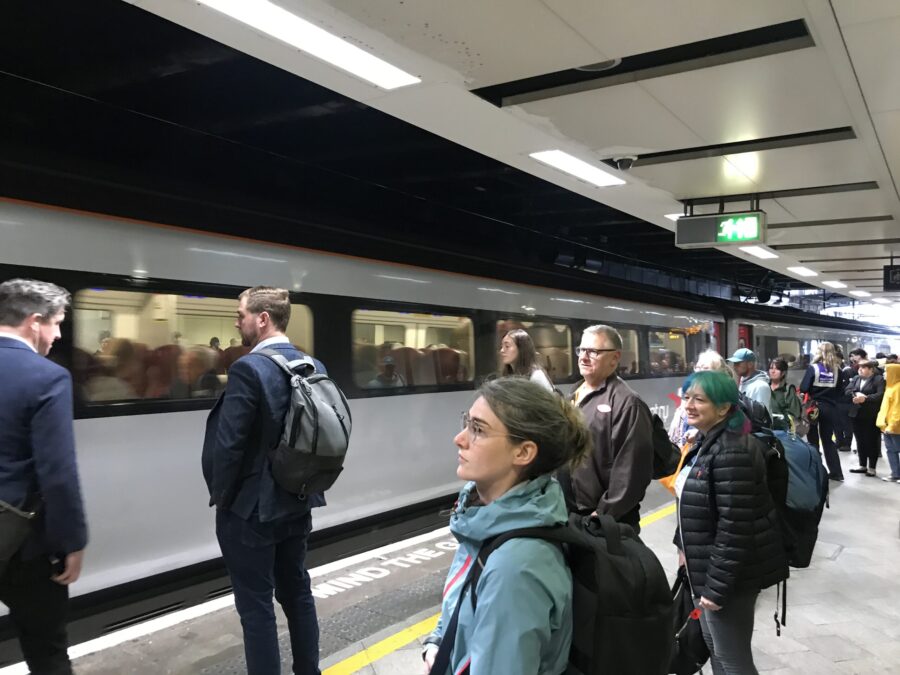The pressure on London’s workforce is building, and not just on the journey into the office. More people are abandoning the capital than at any point since 2016, with 46,000 people relocating out of the capital last year alone, according to a report in the Telegraph this week.
While many left during the pandemic, the latest wave reflects deeper, more enduring discontent with the cost and lifestyle associated with working in the city.
For employers, the implications are significant. A growing number of workers are rejecting the physical and financial strain of commuting, instead seeking home-based roles or starting their own ventures.
As hybrid and remote working continue to shape the post-COVID landscape, London-based organisations may find themselves struggling to retain or attract skilled professionals unless they seriously address work-life balance, flexibility and wellbeing.
Train Delays, Higher Fares, Longer Days
Speaking to Workplace Wellbeing Professional, cosmetic chemist Dr Cuross Bakhtiar described how the daily reality of commuting has changed for the worse. “The train commute used to be easy,” he said. “It used to cost £4,000 a year and now it is £9,000 from Kettering to London in seven years.”
The rising financial burden is only part of the problem. “The trains used to have tables and plugs so you [could] do some work, but now [they don’t]. You have to travel earlier to get a ticket, even though there are more trains to London in the morning,” he said. “There’s always more than 80% occupancy, never mind what time you travel.”

He recalled a recent Friday when all the slower, more affordable trains home were cancelled at St Pancras Station and he had “to get trains to Bedford via Thames Link”.
For Dr Bakhtiar, the solution was clear: move out of London and work from home. “The commute will give me three extra hours a day. Extra sleep or rest as you get older is a benefit. Not having to work on Saturday and getting a longer weekend is a plus.”
From Burnout to Breakthrough
That same sentiment was echoed by Kirsty Rowley, a personal estate agent based in Wimbledon, who also spoke to Workplace Wellbeing Professional. After years of long commutes through the capital, she decided enough was enough.
“For nine years, I had a commute through London that was 1.45 to three hours round commute five to six days a week,” she said. “It just got too much and was draining. I felt like a zombie 80% of the time.”

The final push came when her employer increased the working day by an hour and prohibited her from occasionally bringing her dog to the office — a necessity when her husband was working away. “This meant an extra 45 minutes each day just for dog drop-off.”
She left the role nine months ago and has since launched her own company, working from home — a move that she says has transformed her quality of life.
‘Giving Up’ on London
While stories like these may have once been outliers, they’re fast becoming the norm. The Telegraph report cited mounting rental costs, overcrowded housing and declining public services as key reasons for the exodus. It also noted that London no longer feels like “the gateway to a better life” for many workers, particularly those with families or aspirations of homeownership.
Dr Bakhtiar also said business rents and rates had gone up in London, along with the cost of buying lunch. “Many of the local coffee shops and restaurants have closed and we used to be friends and have a good laugh; but they increased their costs due to pressures on them,” he said, adding that it was “another reason for giving up on the capital and moving out”.
Wellbeing Now a Retention Strategy
For employers, these accounts are a reminder that wellbeing isn’t just about free fruit or wellness webinars. The structure of work — where, how and when it’s done — has a profound impact on employee satisfaction and retention.
Experts say that organisations that fail to recognise this shift may find themselves losing top talent to smaller firms, consultancies or self-employed alternatives that offer greater autonomy and work-life balance. In contrast, those who embrace flexibility and offer meaningful hybrid or remote roles are more likely to keep their teams happy, engaged and loyal.
The growing list of professionals walking away from London life — and the jobs tied to it — signals a crucial turning point for employers. With the cost of commuting rising, burnout on the rise and hybrid working now the norm in many sectors, the capital’s appeal is no longer a given.


